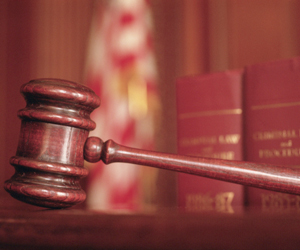 May 15, 2013 – In Dorothy Beaver v. BP Products North America Inc., 2012AP542 (May 9, 2013), the District III Court of Appeals addressed two bread-and-butter practice issues for tort litigators: 1) defendants’ lawyers seeking extensions to file answers, and 2) application of the discovery rule. Although unpublished, the opinion is a worthwhile read for anyone involved in civil litigation.
May 15, 2013 – In Dorothy Beaver v. BP Products North America Inc., 2012AP542 (May 9, 2013), the District III Court of Appeals addressed two bread-and-butter practice issues for tort litigators: 1) defendants’ lawyers seeking extensions to file answers, and 2) application of the discovery rule. Although unpublished, the opinion is a worthwhile read for anyone involved in civil litigation.
Proceedings in the Circuit Court
In 2009, several plaintiffs filed a wrongful death and survival action against BP, Sunoco, Exxon Mobil, and several other petrochemical companies. The complaint alleged that four employees at a rubber manufacturing facility were exposed to benzene in the workplace, which caused their injuries and eventual deaths between 1982 and 1995. The plaintiffs were represented by three law firms – one in Wisconsin, one in Minnesota, and a third in San Jose, Calif.
The plaintiffs’ filed their complaint in July 2009. BP and Sunoco were properly served on Aug. 26, 2009, and their answers would have been due within 45 days (on Oct. 21). On Oct. 21, counsel for BP and Sunoco left a voicemail message with the plaintiffs’ lawyer in the San Jose, Calif. office, requesting a stipulation to permit the late filing of answers as if they had been timely. The San Jose attorney – who was involved in several similar Wisconsin cases against the same defendants – responded to the defendants’ lawyer by email, saying “Yes, extension to cover the 3 days is fine.” The stipulation was eventually signed and filed with the circuit court.
The following month, the plaintiffs moved to strike the stipulation and enter default judgment against BP and Sunoco, arguing that the San Jose attorney had not yet been admitted pro hac vice in the case, and had not informed the plaintiffs of the request, and therefore lacked authority to sign the stipulation. In a written decision, the Eau Claire County Circuit Court ruled that the San Jose attorney had “implied authority” to agree to the stipulation. The circuit court noted his involvement as counsel in other similar cases, and further noted that he was listed as counsel on the pleadings.
Two years later, the respondents, including BP and Sunoco, moved to dismiss the complaint as time barred, citing the three-year statute of limitation for wrongful death and survivor claims. The circuit court granted the motion and entered summary judgment, dismissing the case.
Summary Judgment Reversed
On appeal, the plaintiffs challenged both the stipulation and the dismissal. As for the stipulation, the defendants argued that the San Jose attorney was barred from practicing law in Wisconsin and could not sign pleadings under local rules because he had not yet been admitted pro hac vice.
The court of appeals disagreed, noting that Wisconsin Supreme Court Rule 20:5.5(c)(2) permits an out-of-state lawyer in good standing the ability to provide legal services on an occasional basis in relation to pending Wisconsin proceedings when she reasonably expects to be authorized to appear in the matter. The unanimous court of appeals panel made short work of the argument, finding that the lawyer was legally authorized to enter into the stipulation on behalf of the plaintiffs. The panel found it dispositive that the San Jose lawyer was listed as an attorney for the plaintiffs and had been admitted pro hac vice in other pending Wisconsin cases against the same defendants – thus, he reasonably expected that he would be authorized to act as counsel.
Attorney Brian Kinstler is filling in for Legal Writer Joe Forward during his leave. Brian practices state and federal criminal defense in Milwaukee, and blogs on criminal law issues at www.kinstlerlaw.com/blog.
As to summary judgment, however, the court of appeals reversed the circuit court. All parties agreed that the applicable statute of limitations would normally have elapsed by the time of the action; the plaintiffs, however, argued that their claims were governed by the “discovery rule,” first adopted in Hansen v. A.H. Robins Inc., 113 Wis. 2d 550, 335 N.W.2d 578 (1983). Under the discovery rule, the statute of limitations on an action does not begin to run until “the decedents’ injuries and causes of those injuries were discovered or in the exercise of reasonable diligence should have been discovered.” The plaintiffs argued that the discovery rule presented a genuine issue of material fact as to whether the statute of limitations had run out, barring summary judgment.
In response, the defendants launched several arguments – that the discovery rule did not apply to wrongful death and survival actions; that the discovery rule was limited to medical malpractice cases; that the rule was common law and therefore could not trump Wis. Stat. section 893.22, which governs survivor actions; that “public policy” supported the dismissal; and that the plaintiffs were not entitled to reversal because they could not show when discovery occurred.
The court of appeals gave no weight to the defendants’ arguments. First, the court of appeals noted that the supreme court has restated many times that the discovery rule applied “for all tort actions other than those already governed by a legislatively created discovery rule.” The court also disagreed that Wis. Stat. section 893.22 was not a legislatively-created statute of limitations that trumped the discovery rule; rather, it is “a saving statute” that allows representatives of deceased claimants a year to evaluate whether to commence an action. The defendants’ public policy arguments were disregarded, because Hanson and its progeny are the established public policy in such matters. Finally, the court of appeals determined that any issues related to showing the application of the discovery rule were matters for the circuit court to address on remand.
